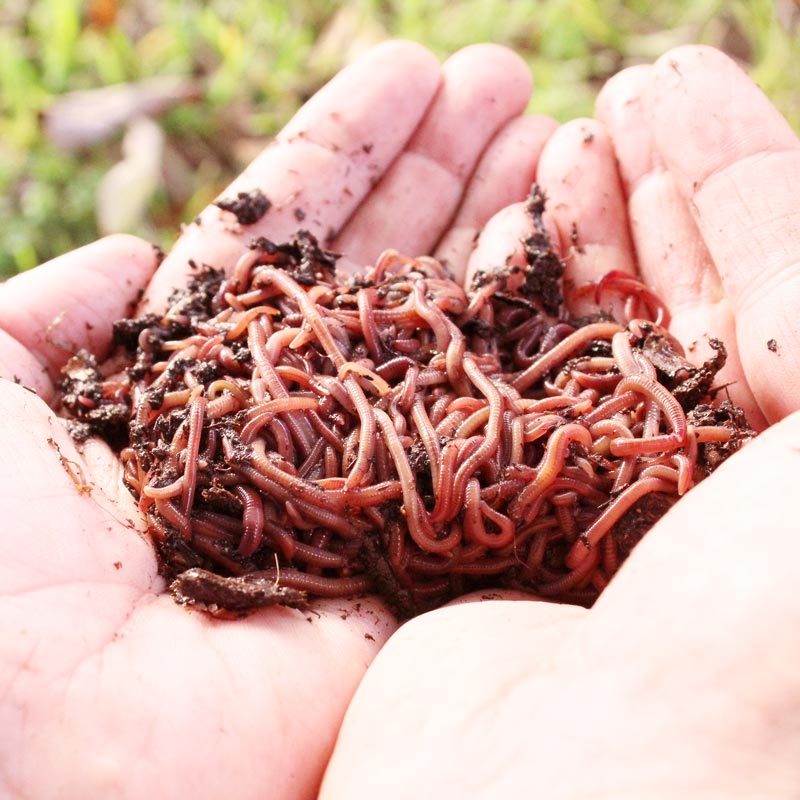Why Lake Hickory Bait Is the Best Choice for Local Bait
Why Lake Hickory Bait Is the Best Choice for Local Bait
Blog Article
Open the Keys of Red Wigglers: Your Overview to Composting Success
The assimilation of red wigglers into composting practices presents a substantial possibility for improving soil health and promoting sustainability. Recognizing their requirements and behaviors is essential for optimizing their possibility, from setting up an appropriate worm container to feeding them the ideal materials.

What Are Red Wigglers?
(Red Wiggler Express)Red wigglers, scientifically called Eisenia fetida, are a types of earthworm largely utilized in composting due to their exceptional ability to decompose raw material successfully. These worms are defined by their reddish-brown coloration and a fractional body, normally determining between 3 to 4 inches in size. Unlike other earthworm varieties, red wigglers flourish in abundant, organic settings, making them optimal for vermicomposting systems.
Indigenous to The United States And copyright, they are frequently discovered in decomposing fallen leaves and compost heap, where they play an important function in nutrient recycling. Their adjustment to staying in a moist, cardio setting allows them to consume huge quantities of organic waste, damaging it down into nutrient-rich spreadings that enhance soil wellness.
Red wigglers recreate quickly, with a solitary worm qualified of generating numerous cocoons each week, each containing numerous hatchlings. Recognizing the biology and behavior of red wigglers is important for maximizing their capacity in composting applications.
Advantages of Utilizing Red Wigglers
Using the power of red wigglers in composting offers numerous benefits that enhance soil health and promote sustainable waste management. These remarkable organisms efficiently break down raw material, transforming cooking area scraps and backyard waste right into nutrient-rich vermicompost. This ended up item is remarkably valuable for plant development, as it boosts dirt framework, boosts wetness retention, and improves nutrient availability.

(Red Wiggler Express)Furthermore, the existence of red wigglers in your composting system can accelerate the composting procedure, generating high-grade compost in a fraction of the moment compared to traditional approaches. The castings generated by these worms are likewise including beneficial microbes that better enhance the soil ecological community.
Establishing Up Your Worm Bin
Creating an efficient worm container is a simple procedure that can substantially enhance your composting initiatives. Worm containers can be made from plastic storage containers, wooden boxes, or readily available worm bins.
Following, prepare the bedding material, which functions as the worms' habitat. A mix of shredded paper, cardboard, and coconut coir functions well, offering a comfortable atmosphere for the worms. Go for a bedding deepness of about 4-6 inches. Dampen the bedding gently, guaranteeing it resembles a moist sponge without excess water merging at the base.

Feeding Your Red Wigglers
To make certain the wellness and efficiency of your red wigglers, it is necessary to supply them with a balanced diet that fulfills their nutritional needs. Red wigglers thrive on a varied variety of organic materials, which not just supply necessary nutrients yet likewise promote reliable composting.
Beginning by integrating kitchen area scraps such as vegetable peels, fruit cores, and coffee premises. Prevent citrus fruits, onions, and garlic, as these can be detrimental to worm wellness. Furthermore, introduce shredded paper, cardboard, and dry fallen leaves to create a well-aerated setting.
Feeding frequency need to be kept an eye on; generally, worms can eat half their body weight in food weekly. It is important to avoid overfeeding, as excess food can cause unpleasant smells and attract parasites. A great practice is to add food in percentages, permitting worms to process it before presenting much more.
Keeping wetness degrees is also crucial; the bedding ought to perspire but not soaked. Lastly, be certain to on a regular basis check the temperature level and pH degrees of the bin to guarantee an ideal setting for your red why not try these out wigglers, inevitably improving their composting performance.
Harvesting and Making Use Of Compost
An effective composting procedure with red wigglers finishes in the rich, dark compost referred to as vermicompost, which can substantially improve soil health and wellness and plant growth. Harvesting this nutrient-dense material generally occurs every 3 to 6 months, depending upon the size of your system and the quantity of natural issue being refined.
To harvest, delicately separate the compost from the worms and any kind of undecomposed products. One efficient method entails relocating the materials of the bin to one side and adding fresh bedding and food to the void, motivating the worms to migrate. After a couple of days, the garden compost can be accumulated from the contrary side.
It is vital to utilize vermicompost properly to optimize its advantages. By incorporating vermicompost right into your horticulture regimen, you not only recycle natural waste however additionally produce a flourishing ecological community that sustains lasting gardening techniques.
Verdict
In summary, red wigglers offer as outstanding allies in composting initiatives, changing organic waste right into nutrient-rich vermicompost. By comprehending the optimal problems for their environment, feeding needs, and garden compost harvesting strategies, garden enthusiasts can boost soil health and wellness and promote plant vitality.
Report this page